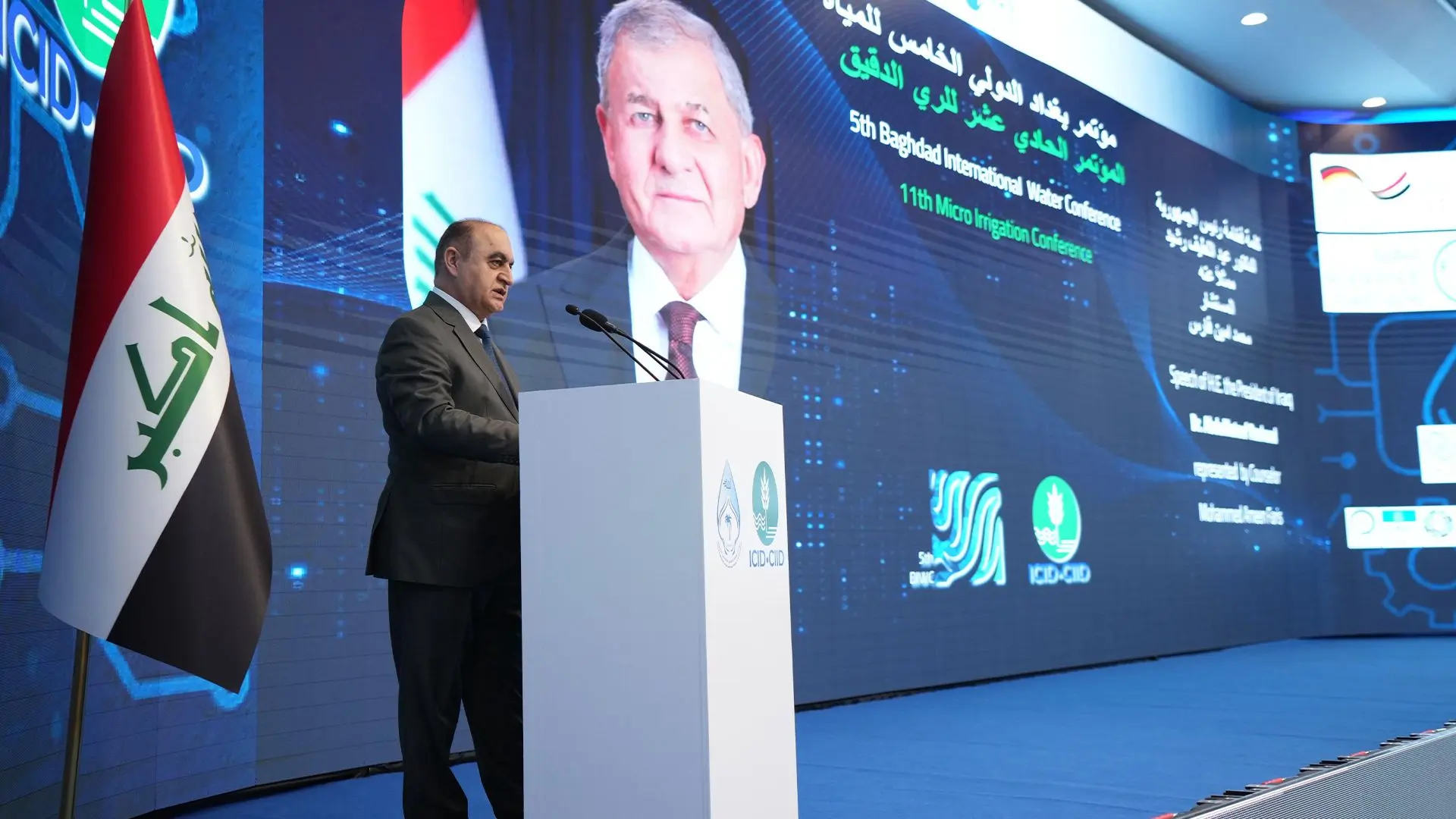Mohammed Amin Fars, advisor to Iraq’s presidency, delivered President Latif Rashid’s address at the Fifth International Baghdad Water Conference, emphasizing the escalating human and environmental impacts of climate change and water scarcity. The conference highlighted Iraq’s urgent need for comprehensive national strategies and international cooperation to address water security challenges, particularly regarding fair water-sharing agreements with upstream neighbors Turkey and Iran.
Climate Change Creates Unprecedented Challenges for Iraq
Mohammed Amin Fars, representing Iraqi President Dr. Latif Rashid at the Fifth International Baghdad Water Conference, addressed a gathering of experts and officials about the mounting water crisis facing Iraq. In his opening remarks, Fars conveyed the President’s greetings to attendees and emphasized the critical timing of the conference, coinciding with escalating challenges related to water resources and climate change impacts.
The presidential advisor stressed that climate change has become a global crisis affecting all nations and peoples, with Iraq being among the most vulnerable countries to its effects. The nation faces severe water resource depletion, increased desertification, and prolonged drought periods, creating a complex web of economic, social, and environmental challenges that require immediate attention.
Fars highlighted that addressing these challenges necessitates close cooperation between relevant government institutions, experts, and academics. He emphasized the need for effective strategies to protect water resources and combat desertification through comprehensive approaches including vegetation expansion and reforestation programs.
Water Crisis Demands National Unity and Strategic Planning
The water crisis in Iraq has evolved beyond a sectoral issue to become a comprehensive national concern requiring unified approaches and coordinated efforts among all stakeholders, according to Fars. The situation demands implementation of scientific strategies that ensure water resource protection for future generations.
Iraq faces increasingly severe challenges due to climate change, reduced water income, and expanding desertification and drought conditions. These circumstances require rapid action across multiple fronts, starting with strengthening regional cooperation on water issues and activating water diplomacy to secure Iraq’s legitimate water rights.
The presidential advisor emphasized the need for reforms in domestic policies regarding the intelligent use and management of water resources. He called for accelerated modernization of irrigation and agricultural systems, alongside implementing new technologies to reduce waste and increase efficiency across all sectors.
Fars specifically requested the Ministry of Water Resources and supporting institutions to intensify their efforts to prevent overflow into rivers and develop water infrastructure. He stressed the importance of establishing a rational water usage culture across different sectors while keeping pace with emerging challenges.
Upstream Dependencies Create Urgent Need for Fair Agreements
Iraq’s position as a downstream country in the Tigris and Euphrates basin creates significant challenges, as the nation depends heavily on water originating from outside its borders, particularly from Turkey and Iran. Fars emphasized the critical need to reach binding and equitable agreements, especially with Turkey, regarding the distribution of Iraq’s water share from the Tigris and Euphrates rivers.
The presidential message clearly stressed the necessity of securing Iraq’s historical rights over these vital water sources. Fars highlighted that reaching an understanding with Turkey should be a primary priority in Iraq’s water policy agenda, requiring serious efforts through diplomatic and legal channels to achieve agreements that guarantee Iraq’s necessary water share.
Such agreements would help meet the needs of Iraq’s population, agricultural projects, and development initiatives while reducing the impacts of water scarcity currently affecting the country. The advisor emphasized that diplomatic efforts must focus on ensuring Iraq receives adequate water supplies to support its citizens’ basic needs and economic development plans.
The conference represents a crucial step toward addressing Iraq’s water security through scientific dialogue and practical solutions. Fars concluded the presidential address by expressing hope that the gathering of experts, specialists, and officials would serve as a starting point for scientific dialogue and practical outcomes that help draft a clear roadmap for sustainable water security.
The Fifth International Baghdad Water Conference brings together regional and international experts to address one of the most pressing challenges facing Iraq and the broader Middle East region. As climate change continues to impact water availability across the region, Iraq’s call for cooperation and fair water-sharing agreements becomes increasingly urgent for the nation’s survival and development prospects.


